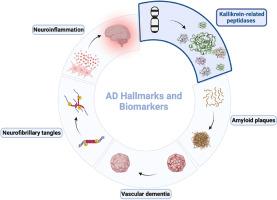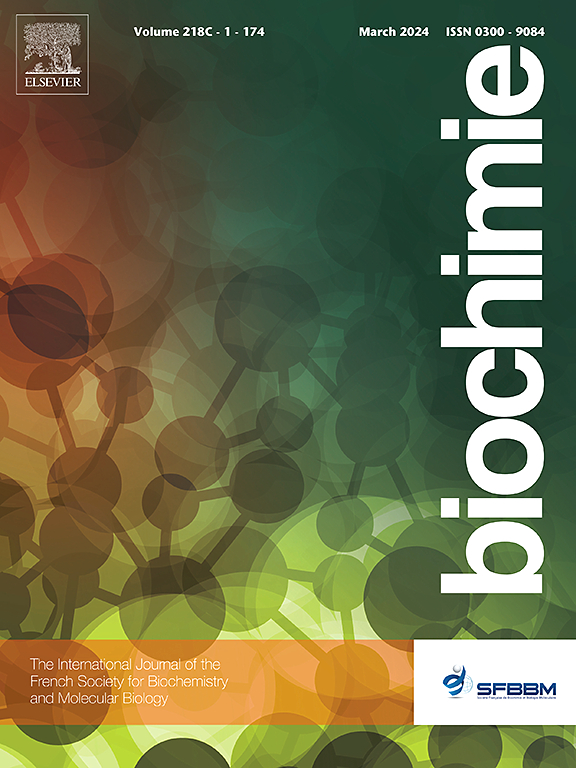Kallikrein 相关肽酶在阿尔茨海默病发病机制中的意义:全面调查
IF 3.3
3区 生物学
Q2 BIOCHEMISTRY & MOLECULAR BIOLOGY
引用次数: 0
摘要
阿尔茨海默病(AD)和相关痴呆症是全球健康面临的一项重要挑战。详细了解这些疾病发病的多种分子机制是治疗这些疾病的线索。Kallikrein相关肽酶(KLKs)是丝氨酸蛋白酶的一个主要家族,已成为AD和相关认知能力下降的潜在生物标志物和治疗靶点。因此,KLKs 被认为会对神经退行性病变的各个方面产生多方面的影响,包括淀粉样蛋白-β聚集、tau 病理学、神经炎症和突触功能障碍。我们在此提出一项全面调查,总结最近的研究结果,概述与 AD 病理生理学有关的主要 Kallikreins,即 KLK8、KLK6 和 KLK7。我们探讨了 KLKs 与关键的 AD 分子通路之间的相互作用,揭示了它们作为早期疾病检测的潜在生物标记物的意义。我们还讨论了它们作为疾病改变干预治疗靶点的相关性,以开发创新的治疗策略,阻止或改善注意力缺失症和相关痴呆症的进展。本文章由计算机程序翻译,如有差异,请以英文原文为准。


Kallikrein-related peptidase's significance in Alzheimer's disease pathogenesis: A comprehensive survey
Alzheimer's disease (AD) and related dementias constitute an important global health challenge. Detailed understanding of the multiple molecular mechanisms underlying their pathogenesis constitutes a clue for the management of the disease. Kallikrein-related peptidases (KLKs), a lead family of serine proteases, have emerged as potential biomarkers and therapeutic targets in the context of AD and associated cognitive decline. Hence, KLKs were proposed to display multifaceted impacts influencing various aspects of neurodegeneration, including amyloid-beta aggregation, tau pathology, neuroinflammation, and synaptic dysfunction. We propose here a comprehensive survey to summarize recent findings, providing an overview of the main kallikreins implicated in AD pathophysiology namely KLK8, KLK6 and KLK7. We explore the interplay between KLKs and key AD molecular pathways, shedding light on their significance as potential biomarkers for early disease detection. We also discuss their pertinence as therapeutic targets for disease-modifying interventions to develop innovative therapeutic strategies aimed at halting or ameliorating the progression of AD and associated dementias.
求助全文
通过发布文献求助,成功后即可免费获取论文全文。
去求助
来源期刊

Biochimie
生物-生化与分子生物学
CiteScore
7.20
自引率
2.60%
发文量
219
审稿时长
40 days
期刊介绍:
Biochimie publishes original research articles, short communications, review articles, graphical reviews, mini-reviews, and hypotheses in the broad areas of biology, including biochemistry, enzymology, molecular and cell biology, metabolic regulation, genetics, immunology, microbiology, structural biology, genomics, proteomics, and molecular mechanisms of disease. Biochimie publishes exclusively in English.
Articles are subject to peer review, and must satisfy the requirements of originality, high scientific integrity and general interest to a broad range of readers. Submissions that are judged to be of sound scientific and technical quality but do not fully satisfy the requirements for publication in Biochimie may benefit from a transfer service to a more suitable journal within the same subject area.
 求助内容:
求助内容: 应助结果提醒方式:
应助结果提醒方式:


